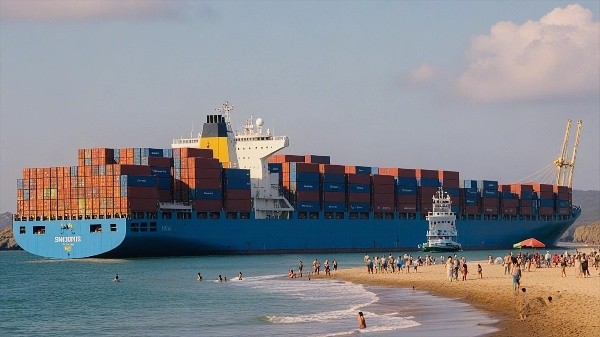Iran’s Plan to Strike Back Against the U.S.
Iran’s Military Preparations Following U.S. Attacks
Loading...

One of the targeted entities is accused of supplying Russia with US-made aircraft parts
Overview of Sanctions
In a significant move, the United States has imposed sanctions on 19 Indian entities and individuals for allegedly supplying goods and components that contribute to Russia's military operations in Ukraine. This action is part of a broader strategy to counteract the circumvention of sanctions imposed on Russia following its invasion of Ukraine. Alongside the Indian firms, hundreds of companies from various countries have also been targeted in this extensive crackdown.
Specific Entities Targeted
The US State Department announced that two Indian companies, Ascend Aviation and Mask Trans, are among those sanctioned for providing aviation components to Russia. Ascend Aviation is specifically accused of selling parts that are of US origin, raising concerns about the implications of such transactions. Additionally, the directors of both companies have been sanctioned, highlighting the US's intent to hold individuals accountable for these actions.
Other Indian firms, including TSMD Global and Futrevo, have also come under scrutiny for their operations within the technology sector of the Russian economy. The US Treasury Department has further sanctioned 14 Indian companies for supplying "dual-use" components—items that can serve both civilian and military purposes. These components include circuit boards, ball bearings, and milling machines, which are critical for various applications, including military hardware.
Broader Context of Sanctions
The recent sanctions are part of a larger initiative by the US government, which has targeted nearly 400 entities and individuals across multiple countries. This coordinated effort aims to disrupt the supply chains that support Russia's military capabilities. Most of the sanctioned entities are based in China, but companies from Kazakhstan, Kyrgyzstan, Malaysia, Switzerland, Thailand, Türkiye, and the United Arab Emirates have also been implicated.
The US Treasury did not confirm whether all the sanctioned parts were used for military purposes, but the implications of these transactions are clear. The sanctions reflect a growing concern over the support that third-party countries provide to Russia, enabling its ongoing military operations in Ukraine.
Reactions and Implications
India's Foreign Ministry has yet to respond to the sanctions, which come at a time when US-India relations are already strained due to various geopolitical issues. Notably, the sanctions coincide with allegations regarding an Indian national's involvement in a plot to assassinate a Sikh separatist in the US, further complicating diplomatic ties.
In contrast, China's embassy in Washington has condemned the sanctions, labeling them as "illegal and unjustifiable." The embassy spokesperson criticized the US for what they perceive as a double standard, accusing it of making false allegations against China's trade practices while simultaneously providing military aid to Ukraine.
Historical Context of Sanctions on India
This is not the first time that the US has targeted Indian firms with sanctions since the escalation of the Russia-Ukraine conflict in 2022. Earlier this year, three Indian shipping companies were blacklisted for allegedly transporting Iranian drones to Russia, despite Moscow's claims that it has not utilized Iranian weaponry in the conflict.
The ongoing sanctions against Indian companies underscore the complexities of international trade and diplomacy in the context of the Ukraine war. As the US continues to enforce its sanctions regime, the implications for India and its companies could be significant, potentially affecting their operations and international partnerships.
In conclusion, the US sanctions against Indian firms reflect a concerted effort to limit Russia's military capabilities while navigating the intricate web of global trade relationships. The situation remains fluid, and further developments are likely as the geopolitical landscape evolves.
Editor
Iran’s Military Preparations Following U.S. Attacks
Troops remain in five strategic locations, raising fears of renewed tensions and long-term occupation.
Opposition forces have taken control of the capital after a significant offensive. Here is how it unravelled.
